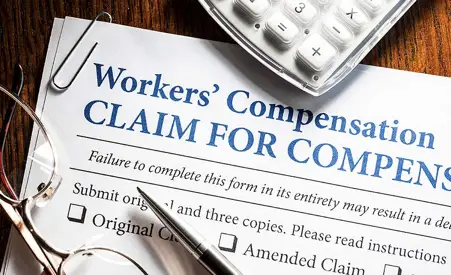You get injured at work. Now, ideally, workers’ compensation is supposed to be there for you. It’s meant to cover your hospital bills, give some wage support, and basically help you manage life when you can’t step into work.
In fact, the whole system was made to provide different types of benefits for workers who get hurt on the job. So, you finally apply for it, and instead of some relief, you get an email, “Your claim has been denied.” That rejection letter can feel like you’ve really failed in a very important step in your life.
Your first reaction is usually anger or shock, like, “What is this? I literally got hurt on the job!” If you are facing it, please don’t feel that way. You still have the right to appeal, and that’s what we’re going to talk about.
First, Understand Why They Denied It
Before proceeding and planning the next step, you need first to gather the reasons and figure out why they said no. You have to get that grudge away and come to your senses, because in the majority, and frankly speaking, companies and insurance providers don’t just randomly deny your compensation for their fun; they usually give some solid reason for you to consider.
It could be small mistakes, like you didn’t report the accident quickly, or the doctor’s report was incomplete. Sometimes they say the injury is not work-related, or that you already had the problem before.
The first thing for you to note is to go through the denial letter carefully. That piece of paper will notify you of the angle they are taking. Once you know that, your appeal can directly target those reasons.
Gather Your Proofs
“Appeal” basically means, “Hey, I’m not agreeing with your decision. Here’s my side of the story, with evidence.” And always be clear that any piece of evidence, even those you feel won’t be suitable, can become a turning point in your case. Therefore, it’s best that you:
- Collect all your medical reports, prescriptions, and even the bill you paid in the pharmacy.
- If you have any photos from the accident site or injury at your work, keep them completely piled up and safe.
- Talk to coworkers who saw the accident. Yes, give it a try, because your colleagues can become your key witnesses, and remember, this is really important in your claim.
- And another important thing is to keep all your office communications ready at hand. For the things that you have already reported to HR or a supervisor, keep that record handy.
The stronger your file, the better chance you have to turn things in your favor.
Follow the process (deadlines are super important).
Just have this clarity: appealing isn’t just about writing a complaint letter. No, it is not. Workers’ compensation boards usually have a proper system and strict timelines. For example, you may only get 30 days or 90 days to appeal, depending on your state. So don’t sit with it too long. File your appeal as soon as possible. Missing the deadline is like handing them an easy victory.
Consider Getting Legal Help
This is where things get a little tricky. Technically, you can handle an appeal on your own. But when insurance companies bring in their strong, destructive lawyers, you don’t want to be standing there alone. A workers’ compensation lawyer knows the rules, the paperwork, and how to argue your case in front of the board or judge.
Think of it this way: when you’re injured, your focus should be on healing. Let the lawyer handle the push and pull with the insurance guys. It reduces stress and gives you a better shot at actually winning the appeal.
File a Formal Appeal
Each state has its own appeal process and deadlines, but it generally includes the following steps:
- File an Appeal Petition
Submit an appeal or “Application for Adjudication of Claim” to your state’s Workers’ Compensation Board or equivalent agency. Pay attention to strict deadlines (often 30–90 days from the denial date).
- Attend a Hearing or Mediation
A workers’ compensation judge may schedule a hearing. Both sides present evidence: medical reports, witness testimony, injury documentation, etc. The judge may make a decision at the hearing or send a written ruling later.
If you lose at the initial hearing, you may have additional appeal options:
- Appeals Board Review
- State Court Appeal (e.g., Court of Appeals or Supreme Court)
- Each level has strict filing deadlines and may require legal representation.

